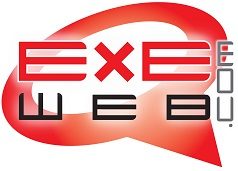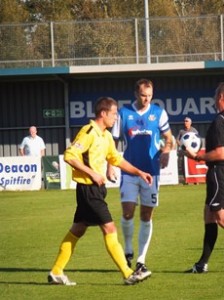Tisdale’s 500: The Conference Years
When Alex Inglethorpe quit City at the end of the 2005/6 season to take up a youth position at Tottenham, there were three candidates identified for his replacement. One was Jimmy Quinn, who a couple of seasons previously had taken Shrewsbury back into the Football League. The next was Shaun Taylor, one for whom the overused epithet 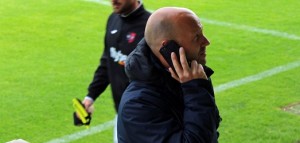 “club legend” could definitely apply. The final candidate, considered amongst City supporters as the outsider for the role, was Paul Tisdale, who had spent some time on loan at the club nearly a decade previously and had honed his managerial skills at Team Bath. It’s fair to say that Tisdale’s appointment was met with a mixture of bemusement and anger amongst the City support. Yet, when City take the field in their rearranged fixture against Oxford on Tuesday night, it will be for Tisdale’s 500th competitive fixture at the helm of the Grecians, a time that has seen plenty of ups and a fair few downs.
“club legend” could definitely apply. The final candidate, considered amongst City supporters as the outsider for the role, was Paul Tisdale, who had spent some time on loan at the club nearly a decade previously and had honed his managerial skills at Team Bath. It’s fair to say that Tisdale’s appointment was met with a mixture of bemusement and anger amongst the City support. Yet, when City take the field in their rearranged fixture against Oxford on Tuesday night, it will be for Tisdale’s 500th competitive fixture at the helm of the Grecians, a time that has seen plenty of ups and a fair few downs.
Tisdale inherited a side that looked to have plenty of quality on paper but had just finished in its lowest ever position after a dismal second half of the season under Inglethorpe. The signing of local lad Adam Stansfield had already all but been confirmed, but one signing that was all Tisdale was defender Rob Edwards, a player who would go on to make a huge impact for the club. Other signings included Bertie Cozic, a journeyman midfielder who had linked up with Tisdale at Team Bath, and Pat Ada, a promising full back whose career was later ended by a prison sentence.
The early signs were good as City picked up seven points from their first three matches, eschewing the increasingly long 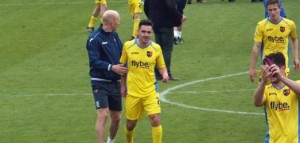 ball game favoured by Inglethorpe in favour of a short passing style as Tisdale looked to sway over an unenthusiastic supporter base. Defeat at Tamworth brought things to a grinding halt, although that along with a 1-0 defeat at recently relegated Oxford would be City’s only two defeats in Tisdale’s first two months, which included finally ending a long hoodoo at Cambridge in winning 3-1, the first City victory there in around 30 years. That City were not pressing higher up the table was down to too many draws. There were some memorable games – none more so perhaps than an illness-ravaged City side, reduced to playing veteran defender Jon Richardson up front, clinching a 2-1 win at St Albans in a deluge that was sufficient to see a match at nearby Watford abandoned. City’s fortunes were then very much up and down – after taking advantage of Weymouth finding themselves in financial difficulties and plundering three players, one of them, Lee Elam, scored a hat-trick on
ball game favoured by Inglethorpe in favour of a short passing style as Tisdale looked to sway over an unenthusiastic supporter base. Defeat at Tamworth brought things to a grinding halt, although that along with a 1-0 defeat at recently relegated Oxford would be City’s only two defeats in Tisdale’s first two months, which included finally ending a long hoodoo at Cambridge in winning 3-1, the first City victory there in around 30 years. That City were not pressing higher up the table was down to too many draws. There were some memorable games – none more so perhaps than an illness-ravaged City side, reduced to playing veteran defender Jon Richardson up front, clinching a 2-1 win at St Albans in a deluge that was sufficient to see a match at nearby Watford abandoned. City’s fortunes were then very much up and down – after taking advantage of Weymouth finding themselves in financial difficulties and plundering three players, one of them, Lee Elam, scored a hat-trick on 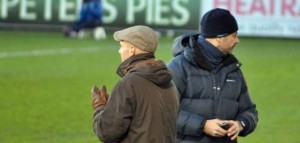 debut in a 4-0 thrashing of his recent employers. Elam was promptly dropped from the side a few days later for the visit to runaway leaders Dagenham & Redbridge, a 4-1 defeat intensifying calls for Tisdale to fall on his sword. These calls faded somewhat when City won four and drew one of their next five, and despite continuing inconsistency, City clinched a place in the playoffs with a 2-1 defeat of Southport on the final day.
debut in a 4-0 thrashing of his recent employers. Elam was promptly dropped from the side a few days later for the visit to runaway leaders Dagenham & Redbridge, a 4-1 defeat intensifying calls for Tisdale to fall on his sword. These calls faded somewhat when City won four and drew one of their next five, and despite continuing inconsistency, City clinched a place in the playoffs with a 2-1 defeat of Southport on the final day.
City’s opponents in the playoffs would be Oxford – given their financial clout they were amongst the favourites for an immediate return to the Football League but had fallen away somewhat after a strong start. The first leg at home was frustrating, an Andy Taylor Own Goal giving Oxford a vital 1-0 lead going into their home tie. For City to clinch a place at Wembley they’d have to win at the Kassam, which in doing so would also necessitate having to win in front of the TV cameras, something City had never done. The task was made even harder when Yemi Odubade put Oxford further ahead, but goals from Lee Phillips and Adam Stansfield sent the tie to extra time and penalties (no away goals rule), with City clinching their spot in the final through the unlikely hero of Steve Tully.
The build-up to the final was overshadowed by the news that Martin Rice, on being told he was dropped for the final, 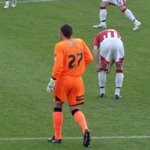 stormed out of the club, never to play again. Although City took the lead against Morecambe through Phillips and Paul Jones capped a man of the match display by becoming the first player to save a penalty at the new Wembley, in truth Morecambe were better throughout and goals from Thompson and Carlton clinched their place in the Football League before Matt Gill capped a poor day by getting himself sent off for headbutting Craig Stanley.
stormed out of the club, never to play again. Although City took the lead against Morecambe through Phillips and Paul Jones capped a man of the match display by becoming the first player to save a penalty at the new Wembley, in truth Morecambe were better throughout and goals from Thompson and Carlton clinched their place in the Football League before Matt Gill capped a poor day by getting himself sent off for headbutting Craig Stanley.
It’s fair to say the close season had its upheavals. Newly relegated Torquay had a lottery cheque to burn and appointed City assistant manager Paul Buckle as their new boss. He promptly raided City for key players such as Chris Todd and Lee Phillips, plus Martin Rice, and rumour has it tried to tap up the likes of Matt Gill and Jamie Mackie. He also had City’s transfer target list in his hands and tempted the likes of Chris Hargreaves to sign for the Gulls instead. Having lost Danny Woodards during the January window, Billy Jones also departed in the summer, which meant youngster George Friend was thrust into the limelight. Matt Taylor, who had an FA Trophy winners medal as a goalkeeper but had converted to a defender, was brought in from Team Bath to replace Todd, while other signings included veteran goalkeeper Andy Marriott and experienced but injury-prone striker Steve Basham.
If there was a hangover from losing at Wembley and the transfer travails of the summer, it certainly didn’t show in a 4-1 win at Altrincham which saw 17 year old Liam Sercombe make his City debut. City went on to win three and draw two of their first five games before suffering a 4-0 thrashing at Kidderminster. Five of City’s next six matches ended in draws, a repeat of some of the frustration of the previous season, and when City began October with their usual defeat at Aldershot the knives were out again before a seven match unbeaten run (two in the FA Cup) got things back on track, with Jamie Mackie starting to fulfil the promise and faith shown in him by the coaching staff by going on a fine scoring run. After City lost at Bury in the FA Cup, all eyes turned to the return of a derby fixture against Torquay on Boxing Day, with all the bad blood around Buckle’s actions very much in the air.
In front of the Setanta TV cameras the sides played out a thrilling match which City deservedly edged 4-3. Mackie continued his fine form with a superb strike before Dean Moxey put City 2-0 up at the break. Chris Todd scored in front of the Big Bank to reduce the arrears, only for Wayne Carlisle to put City 3-1 up. Then came a major flashpoint as Tim Sills earned a red card for Dan Seaborne through a theatrical dive. Mackie immediately went up the other end and extended City’s lead, dashing down the tunnel to celebrate with Seaborne, before Torquay ensured a nervy finish with goals from Lee Phillips and a Kevin Nicholson free kick after Paul Jones picked up what was judged by the referee to be a Rob Edwards back pass. The return on New Years Day was less climactic as Torquay literally kicked Mackie off the park in winning 1-0, this would turn out to be Mackie’s last match for City before moving down the A38 in January. In the meantime City had signed ex-Bristol City midfielder Ryan Harley from Weston-Super-Mare.
The Torquay defeat would be City’s last until a 3-2 reverse at York in March, but further defeats to Weymouth and 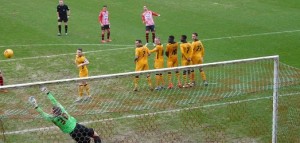 Salisbury ensured the nerves would jangle before a Dean Moxey hat-trick in a 4-1 stuffing of Stafford (having won 5-1 in the away fixture) clinched City’s return to the playoffs with a game to spare.
Salisbury ensured the nerves would jangle before a Dean Moxey hat-trick in a 4-1 stuffing of Stafford (having won 5-1 in the away fixture) clinched City’s return to the playoffs with a game to spare.
League positions ensured there would be one Devon club at Wembley as City were paired with Torquay and there seemed to be a number of parallels with the previous season against Oxford in that the first leg, played at home, ended in defeat albeit in somewhat controversial fashion – City had a perfectly good goal disallowed through Wayne Carlisle after Tim Sills, seemingly recovered from his pole-axing by Seaborne on Boxing Day, had given the Gulls the lead. Carlisle then did equalise in the second half, but there was late drama as Zebroski charged down a Paul Jones clearance, apparently with his hands, the ball trickling over the line to give Buckle’s side the advantage.
After a cagey first half, Tisdale introduced Harley at half time in place of the more workmanlike Bertie Cozic, but again like the previous season City went further behind in the tie when veteran Kevin Hill thumped home. Further subs were introduced in the shape of Carlisle and Ben Watson, and City finally reduced the arre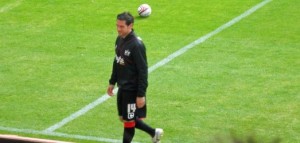 ars thanks to a mazy dribble from his own half from Rob Edwards to set up Harley. With less than 10 minutes to go City were given further hope when Zebroski bundled over Richard Logan in the box and Watson from the spot became the second sub to score and to level the tie. From being hopeful City were suddenly expectant in the dying minutes as Carlisle’s cross was brilliantly met by Logan’s head to put City ahead on aggregate. Into injury time and with what should have been their last throw of the dice, Torquay wasted a free kick in a good position, giving the ball to Edwards who launched a long ball out to Watson who squared for Carlisle to put the game beyond any doubt. Cue delirium and a very famous TV interview by Steve Tully.
ars thanks to a mazy dribble from his own half from Rob Edwards to set up Harley. With less than 10 minutes to go City were given further hope when Zebroski bundled over Richard Logan in the box and Watson from the spot became the second sub to score and to level the tie. From being hopeful City were suddenly expectant in the dying minutes as Carlisle’s cross was brilliantly met by Logan’s head to put City ahead on aggregate. Into injury time and with what should have been their last throw of the dice, Torquay wasted a free kick in a good position, giving the ball to Edwards who launched a long ball out to Watson who squared for Carlisle to put the game beyond any doubt. Cue delirium and a very famous TV interview by Steve Tully.
Having frozen somewhat at Wembley the previous season it was important City kept their h eads this time around against Cambridge, managed by Jimmy Quinn, whom Tisdale had beaten to the City job. Again City went in front, that man Edwards nodding home from close range after the Cambridge defence stood and watched a Dean Moxey corner. This time, despite many hairy moments including one shot cleared off the line, there was to be no equaliser and City had clinched their rightful place back in the Football League at the fifth attempt. For Tisdale it was a personal triumph and he had seemingly assuaged the fears of the City faithful who had doubted his appointment.
eads this time around against Cambridge, managed by Jimmy Quinn, whom Tisdale had beaten to the City job. Again City went in front, that man Edwards nodding home from close range after the Cambridge defence stood and watched a Dean Moxey corner. This time, despite many hairy moments including one shot cleared off the line, there was to be no equaliser and City had clinched their rightful place back in the Football League at the fifth attempt. For Tisdale it was a personal triumph and he had seemingly assuaged the fears of the City faithful who had doubted his appointment.
The second part in this series can be found here.

